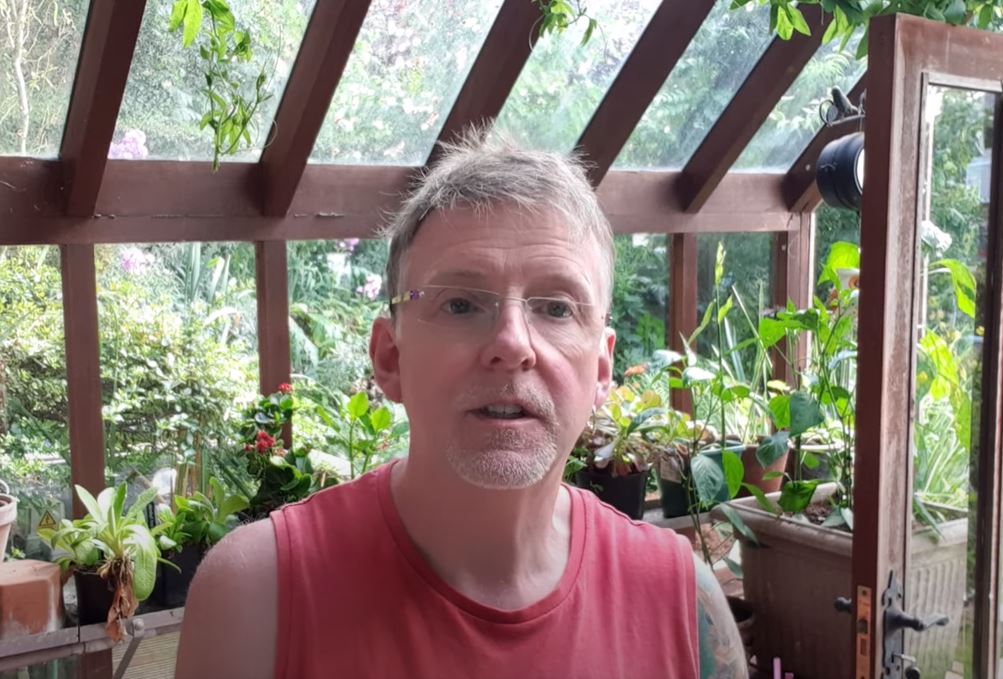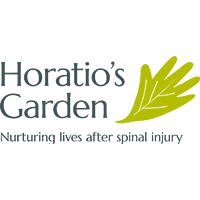Dave Darwent; “It came as a bit of a surprise that opening my garden is a kind of therapy for my mental wellbeing”

The garden at 12 Ansell Road in Sheffield is as old as the National Garden Scheme. Established in 1927 by current owner Dave Darwent’s grandparents – who bought the house when they were first married – returning the garden to their original design has been a labour of love for Dave. It is labour that has also reaped some unexpected rewards.
Watch Dave’s video here or read this story below:
“We hear a lot about the benefits of gardening, being outdoors and active, and visiting gardens for our physical wellbeing,” says Dave. “We also hear quite a bit about the benefits of these same things for mental wellbeing but it’s not often that we share the benefits of mental wellness as a garden owner and opener.
“I’ve loved the outdoors, gardens, walking, countryside and even urban spaces all my life. In my late-twenties and early-thirties I discovered how much I enjoyed the actual gardening itself, largely through my desire to restore my grandparents’ garden to as near as I can to the way they laid it out between 1928 and 1959, when my grandfather died. However, it wasn’t until my early-forties that I considered opening the garden to the public via the National Garden Scheme.”
A few years into opening his garden David finally consulted a doctor and got confirmation of what he had suspected since his early teens; that he has depression and anxiety at a significant level. With his self-esteem in what a counsellor described as a ‘negative position’ Dave’s self-confidence had been in a spiral of continual decline since his teens. But the Covid-19 crisis led to a powerful discovery.
“This year, in the melee of the Covid-19 pandemic, I resigned myself to there being no garden openings, but when the lockdown restrictions were eased a little in June, the National Garden Scheme announced that we could do regulated pre-booked openings if we wanted to, and I readily agreed to do six.
“It was during these openings that it gradually dawned on me just how much opening the garden for the last ten years has helped my depression and anxiety. I’d always noticed that I felt immensely better in the run up to, on, and immediately after garden open days, but I’d never really thought about it very much. This year, with the isolation that the lockdown has brought, working from home since early March with almost zero human contact, actually welcoming visitors to my garden, every single one of whom I had lengthy (socially distanced) conversations with, made such a huge difference.”
“While it’s difficult to articulate the nature of the difference it’s suffice to say that it was ‘eye-opening’. The crucial thing is that everything I do in the garden is usually for me, and always based on the goal of maintaining the garden in its original form. But there is no affirmation, feedback, or critique. For all I know, anyone else might think it’s boring, unimaginative, bland or messy. So, when visitors arrive, and their first comments as they step into the garden are “What a lovely space”, “Wow, it’s like going back to my grandparents’ / uncles’ / parents’ garden when I was growing up!” or “This is so peaceful and colourful – and what a lot of plants you have in the space”, it’s clear that they have a real and substantial interest in knowing about how the garden evolved, what the plants are, how I keep them alive and happy and so on, and it provides not only human contact but a powerful affirmation that there is value in what I do.
“Because I’d never seriously thought about why opening the garden makes me feel so much better it came as a bit of a surprise to realise that it is a kind of therapy for my mental wellbeing.”
The powerful affirmation that Dave gets from opening his garden to visitors gives him real purpose in what he does and in carrying on. It’s an affirmation that is becoming an increasingly important cornerstone of medical thinking and reinforces the National Garden Scheme’s passionate belief in the potent link between gardens and health.
“The recognition that gardens and communal green spaces are critical to our mental and physical health and wellbeing has been reinforced by the recent lockdown,” says Professor Sam Everington, one of the country’s leading advocates of social prescribing. “Just as access to gardens provides hope and routine – allowing us to be creative, to keep fit, to share with like-minded people and to reap positive results – being denied access to green spaces can exacerbate isolation and anxiety.”
The findings of a recent National Garden Scheme survey to establish the importance of gardens and outdoor spaces during the Coronavirus lockdown back up David and Professor Everington’s assertions. Read it here. Survey Results September 2020


















